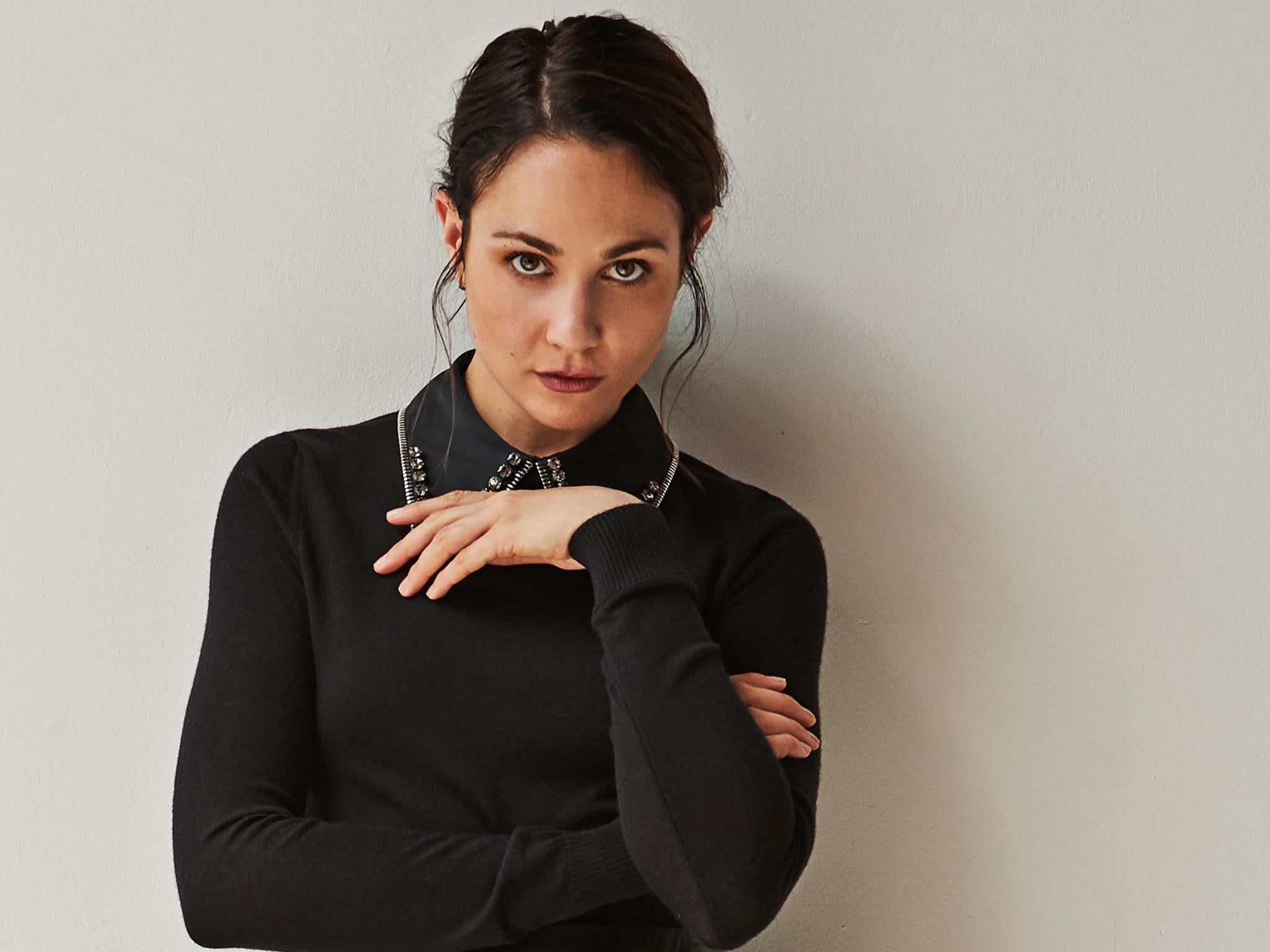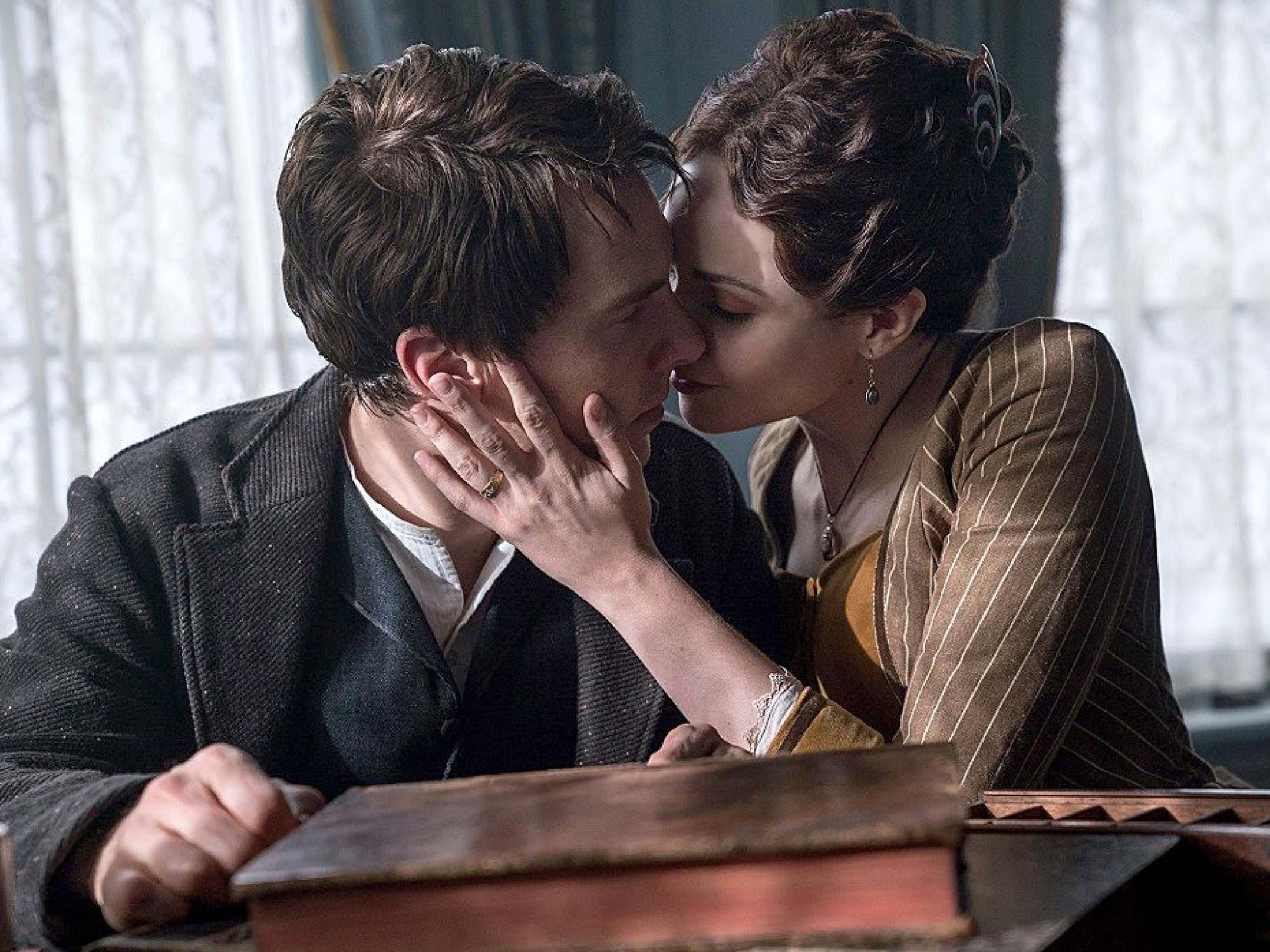Tuppence Middleton: ‘I’m more comfortable with people seeing my body as I am now’
The ‘War & Peace’ star talks to Alexandra Pollard about the long, troubled journey of her new film ‘The Current War’, being expected to do nude scenes and how women ‘really have a voice now’


Your support helps us to tell the story
From reproductive rights to climate change to Big Tech, The Independent is on the ground when the story is developing. Whether it's investigating the financials of Elon Musk's pro-Trump PAC or producing our latest documentary, 'The A Word', which shines a light on the American women fighting for reproductive rights, we know how important it is to parse out the facts from the messaging.
At such a critical moment in US history, we need reporters on the ground. Your donation allows us to keep sending journalists to speak to both sides of the story.
The Independent is trusted by Americans across the entire political spectrum. And unlike many other quality news outlets, we choose not to lock Americans out of our reporting and analysis with paywalls. We believe quality journalism should be available to everyone, paid for by those who can afford it.
Your support makes all the difference.Tuppence Middleton regrets shaking my hand. “Oh no, you need to wash it now,” she yelps. “I suddenly realised, I’m a bit peaky today. A little bit ill.” She reaches for her bag. “I’ve got some hand sanitiser, do you want it?” It’s fine, I assure her. I’ll wash it afterwards. “Yeah, OK... Hopefully I’ll make some sense, and not have brain fog.”
I wouldn’t have known she was feeling peaky. She’s bright-eyed, whip-smart, and breezily self-assured – the kind of assuredness that puts you at ease rather than on edge. Dressed in a black vest and billowing orange skirt, she has long since discarded her shoes. “It’s too hot. I’m such a winter baby, I can’t deal with the heat.”
The 32-year-old English actor is probably best known as lascivious villain Hélène Kuragina in the 2016 BBC adaptation of War & Peace, an opulent period drama, though sci-fi fans will recognise her from the Wachowskis’ outlandish Netflix sci-fi series Sense8. By her own admission, Middleton tends to flit between those two genres; her two upcoming roles are in sci-fi thriller Possessor, directed by Brandon Cronenberg (son of David), and the new Downton Abbey film.
The film we’re here to talk about falls into the latter category, but it was nearly dead in the water before it even came out. The Current War – which chronicles the battle over electricity between Thomas Edison (Benedict Cumberbatch) and George Westinghouse (Michael Shannon) – originally premiered at Toronto International Film Festival back in 2017. Its director, Me and Earl and the Dying Girl’s Alfonso Gomez-Rejon, didn’t want it released yet, but it was rushed to shoddy completion by an awards-hungry Harvey Weinstein, weeks before he was swept away beneath a wave of sexual assault allegations. The reviews weren’t good. Gomez-Rejon, as he recently put it to Indiewire, “felt like an idiot”.
“I didn’t see that version,” says Middleton, who plays Edison’s neglected wife Mary. “I suddenly heard it was coming out at Toronto, and I hadn’t seen it, and then they were like,” she adopts a shifty tone, “‘It’s coming back… We’re going to do a re-edit and we’re going to shoot some additional scenes.’ So we shot all these scenes maybe two years later. It was throwing it together a bit, but it was lovely because everyone was doing it because they wanted to make the film better.”
Now, having been bought by Lantern Entertainment and 13 Films after Weinstein’s company went bankrupt, this new, rejigged version is ready for take two. Middleton seems happy with the final cut, which tells what could have been a very dry story with vim and vigour, all whip pans and drunken angles. But Mary doesn’t exactly feature much. I wanted more… “More of the women?” laughs Middleton.
“Yeah, it’s a… I guess at the root of it is the story of these two men. But what was nice about working with Alfonso was that he very much wanted to bring the women to the fore. Marguerite Westinghouse [played by Katherine Waterston] was much more involved, and was George’s right-hand woman. Mary had a more traditional role. She was raising the children. But they met because she worked for him, so that’s still pretty progressive for a woman at that time.” Mary was 16 when she married the 24-year-old Edison, but we’ll let that slide.

It’s not obvious which scenes from The Current War were added years later. I found that a little surprising, given that Tom Holland (who plays Edison’s associate Samuel Insull) went from a teenager to a 23-year-old in that time. “I know, he’s so young isn’t he?” says Middleton wistfully. “Well, he’s not that young, that’s probably patronising. But I’m always so amazed when I see how well actors that young handle success like that. I think he’d just filmed Spider-Man and it was about to kick off. I was like, ‘Wow, he’s really got his head screwed on.’ He was really humble and sweet. God, I don’t think at that age I’d have been so calm and together, with that amount of success.”
Middleton, who was named Tuppence after the childhood nickname her grandmother gave her mother, grew up in Somerset. She was in a handful of plays while at Bristol Grammar School, before moving to London to study acting. But it wasn’t until she was in her early twenties that she started working in earnest, and even then, it was with small roles in TV series such as Bones, New Tricks and Friday Night Dinner. “I was always really scared of leaving drama school and immediately going into a huge film,” she says, “because you really put yourself out there, and people can be so judgemental.

Watch Apple TV+ free for 7 days
New subscribers only. £8.99/mo. after free trial. Plan auto-renews until cancelled

Watch Apple TV+ free for 7 days
New subscribers only. £8.99/mo. after free trial. Plan auto-renews until cancelled
“Especially as a woman in the industry,” she continues, “you learn to stand up for yourself and how to say what you want and what you need without feeling like you’re being tricky or you’re difficult. You do just eventually find your space and try and own it.”
I’m reminded of an interview from a few years ago, in which Middleton said that as soon as she did one nude scene (a lot of fuss was made of one particular, incestuous sex scene in War & Peace) she felt pressured into doing more. Is that kind of thing improving? “Definitely,” she says. “But yeah, I think there is an expectation that you’ve done it once, so you’ll do it again. I don’t have a problem with doing intimate or nude scenes – it’s part of our everyday life all the time, so it seems weird not to show it – but it’s really up to the individuals how they want to do that.
“I mean weirdly, in your twenties, you have the body that you never appreciate, but I feel so much more comfortable and confident in my body now. Maybe I’m not the most toned person, or I don’t go to the gym or whatever, but I feel much more willing to… in a sense…” She grapples for the right words. “I feel like it might be misquoted… more willing to show my body.” She winces. “I don’t mean that, but I mean, I’m more comfortable with people seeing my body as I am now, because I think that as an actor it’s really important to represent lots of different types of people, and real people.”
Middleton understands why some actors choose to get nips and tucks. “That’s something as a woman you’re much more aware of, maybe you get a few more wrinkles, maybe your body changes, maybe you have kids, and that’s something that people are really scrutinised for,” she says. “I think it’s a choice if people want to have surgery, but I would feel really uncomfortable not being able to use my face and make expressions.”
Still, she’s happy with the way things are heading. “I still think we have to make really big steps, but even 12 years ago it was different, so it’s nice to be in the industry when the change is happening. It’s quite an exciting time to be working. I feel like we really have a voice now, as women. It’s not about saying it has to be women who tell women’s stories, I just think it’s about representation and diversity, and having as many stories as we can on screen.”
Does she think the rate of progress is getting faster? “I think so. It feels like everyone’s listening, and this is a really important time, so we have to take advantage of it. We, as young people, have a voice. I think generations above us are listening a lot more. Because they have to.” She shrugs. “Because otherwise, we’re taking steps backwards. And what’s the point in that?”
The Current War is out in UK cinemas now
Join our commenting forum
Join thought-provoking conversations, follow other Independent readers and see their replies
Comments